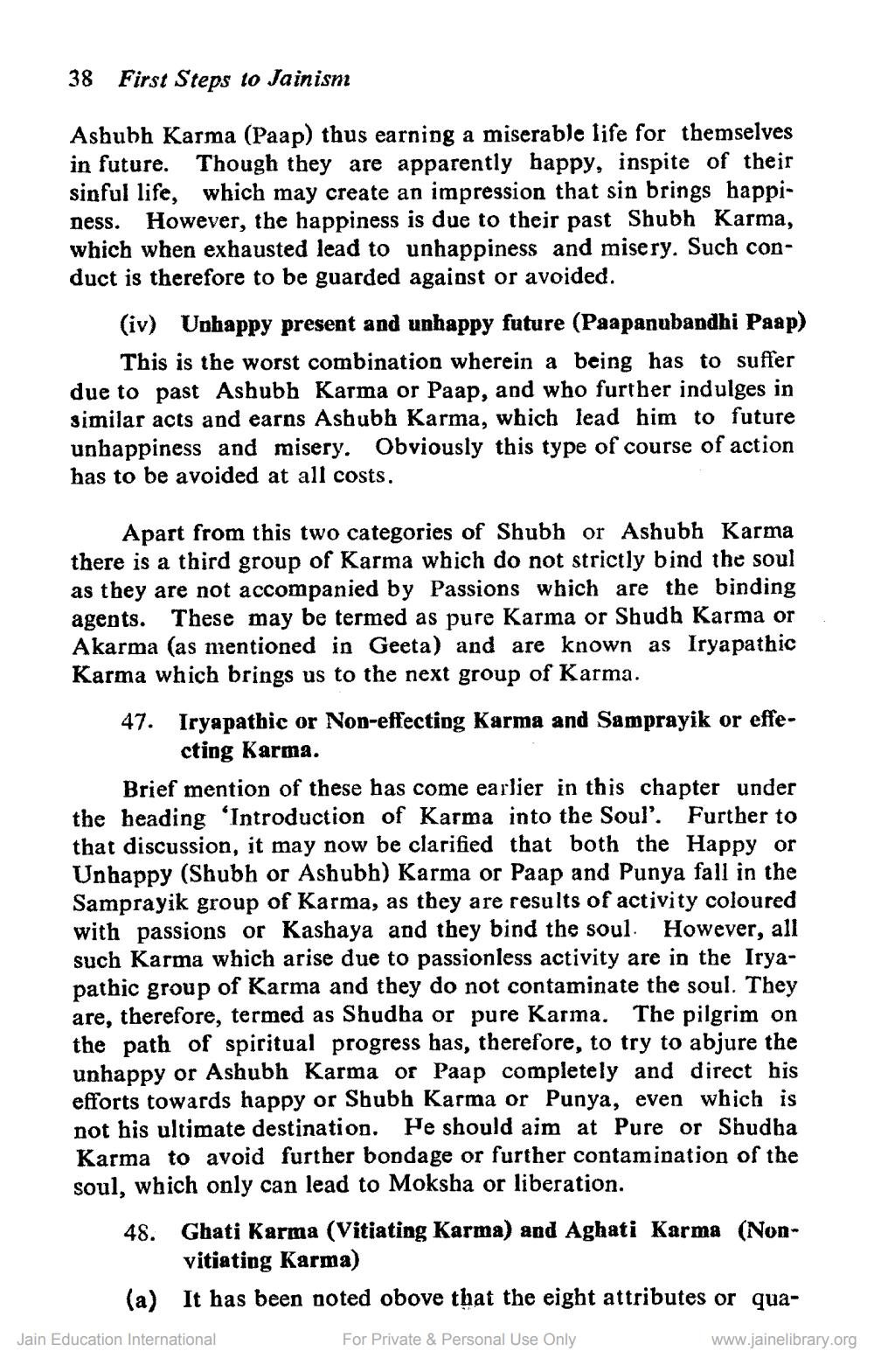________________
38 First Steps to Jainism
Ashubh Karma (Paap) thus earning a miserable life for themselves in future. Though they are apparently happy, inspite of their sinful life, which may create an impression that sin brings happiness. However, the happiness is due to their past Shubh Karma, which when exhausted lead to unhappiness and misery. Such conduct is therefore to be guarded against or avoided.
(iv) Unhappy present and unhappy future (Paapanubandhi Paap) This is the worst combination wherein a being has to suffer due to past Ashubh Karma or Paap, and who further indulges in similar acts and earns Ashubh Karma, which lead him to future unhappiness and misery. Obviously this type of course of action has to be avoided at all costs.
Apart from this two categories of Shubh or Ashubh Karma there is a third group of Karma which do not strictly bind the soul as they are not accompanied by Passions which are the binding agents. These may be termed as pure Karma or Shudh Karma or Akarma (as mentioned in Geeta) and are known as Iryapathic Karma which brings us to the next group of Karma.
47. Iryapathic or Non-effecting Karma and Samprayik or effecting Karma.
Brief mention of these has come earlier in this chapter under the heading "Introduction of Karma into the Soul'. Further to that discussion, it may now be clarified that both the Happy or Unhappy (Shubh or Ashubh) Karma or Paap and Punya fall in the Samprayik group of Karma, as they are results of activity coloured with passions or Kashaya and they bind the soul. However, all such Karma which arise due to passionless activity are in the Iryapathic group of Karma and they do not contaminate the soul. They are, therefore, termed as Shudha or pure Karma. The pilgrim on the path of spiritual progress has, therefore, to try to abjure the unhappy or Ashubh Karma or Paap completely and direct his efforts towards happy or Shubh Karma or Punya, even which is not his ultimate destination. He should aim at Pure or Shudha Karma to avoid further bondage or further contamination of the soul, which only can lead to Moksha or liberation.
48.
Ghati Karma (Vitiating Karma) and Aghati Karma (Nonvitiating Karma)
(a) It has been noted obove that the eight attributes or qua
For Private & Personal Use Only
www.jainelibrary.org
Jain Education International




